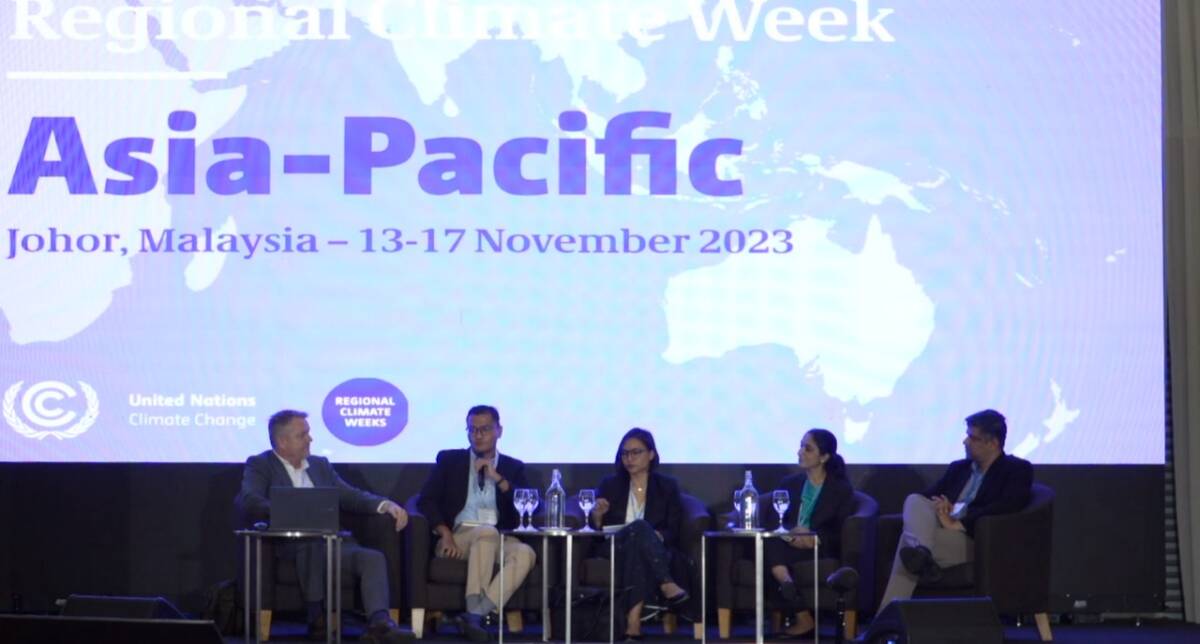Johor Bahru, Malaysia, 16 November 2023 – Leading up to COP28 in the United Arab Emirates, there is a growing focus on climate financing efforts. Climate financing has become a critical focus to support a fair transition towards a sustainable, low-carbon economy.
The transformation towards a low-carbon economy and financing for a just transition requires government leadership. Governments can seize opportunities in funding energy transition by ensuring the fair execution and accountability of energy transition. For instance, the funding from the Just Energy Transition Partnership (JETP) supported by developed countries aims to expedite the energy transition. The ‘just’ aspect must take precedence in every energy transition funding agreement.
Wira Agung Swadana, the Green Economy Program Manager at the Institute for Essential Services Reform (IESR), stated that the energy transition is not solely about closing coal-fired power plants and shifting towards renewable energy plants. Instead, a broader perspective is needed to understand the impacts that will arise from the energy transition.
“The funding for the energy transition is not solely confined to infrastructure development; rather, every aspect of a just transition should also be taken into consideration. Just transition itself is not only about the affected workforce but also involves the broader community surrounding coal mining areas,” Wira expressed during the Asia-Pacific Climate Week 2023.
Furthermore, Wira also assesses that the funding for JETP is still very limited and insufficient to meet the set targets. This funding source is still predominantly dominated by loan-based financing.
“IESR is part of the technical working group with the JETP Secretariat. JETP funding still heavily relies on loans, and some of these are not new commitments from donor countries. Only about 1.62% of what we receive comes in the form of grants for a fair transition. There’s still a shortfall in funds, which I find quite ironic. Grants need to be increased rather than relying solely on loans,” he emphasized.
The funding for energy transition should encompass a comprehensive approach, including the early retirement of coal-fired power plants, addressing coal-producing regions, increasing the use of renewable energy, and managing transitions in mining locations. Wira believes that JETP still lacks a comprehensive and holistic approach.
“The funding for energy transition should ideally serve as the starting point. Currently, Indonesia is in the process of implementing the National Medium-Term Development Plan (RPJMN), utilizing domestic commitments and striving to align it with JETP and the Energy Transition Mechanism (ETM). The Indonesian government needs to address various challenges at the domestic, national, and international levels,” added Wira.
Tiza Mafira, Director of the Climate Policy Initiative (CPI), revealed that there are debates within some financial institutions regarding financing for a just transition.
“The issue lies in debates within financial institutions about whether financing for a just transition is part of financing for energy transition. When we discuss the ‘just’ aspect, we’re talking about several critical projects within the energy transition. It’s not just a few projects but an overall significant change in the economy. If not managed properly, this will have a significant impact on a large scale,” explained Tiza.

